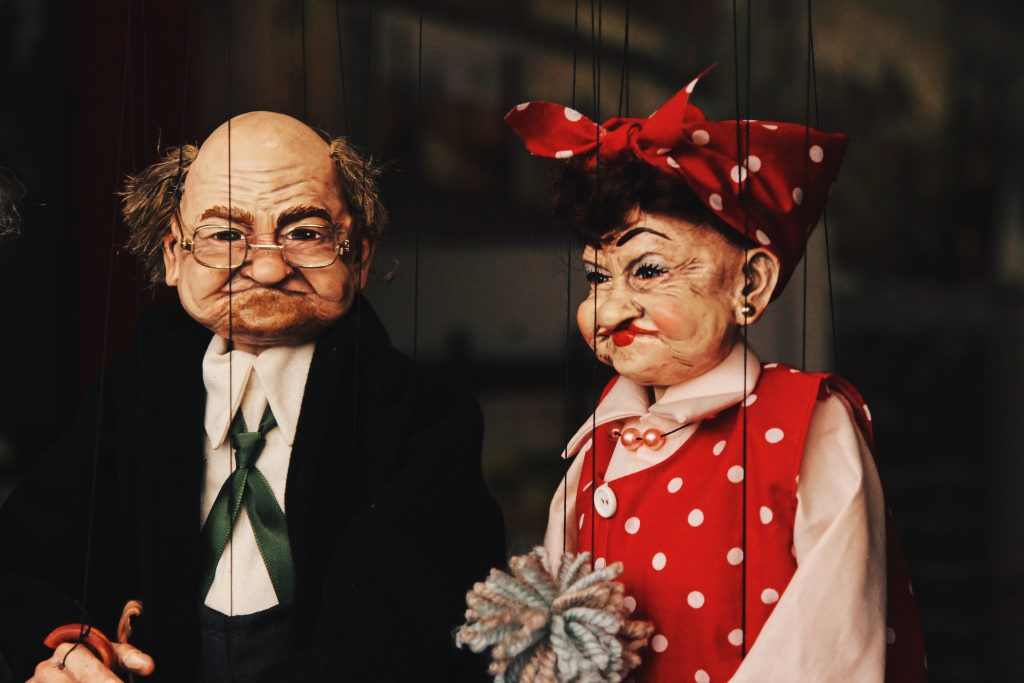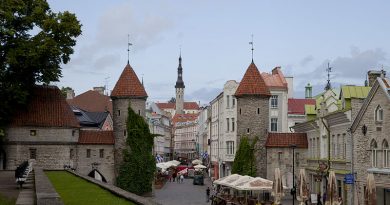Crédito da imagem: Pablo Hermoso on Unsplash
Esta história foi obtida de um folheto promocional da empresa Natura para divulgação do produto VôVó e retrata a forma como avôs e avós são vistos em diferentes culturas. O texto em inglês foi traduzido a partir do original em português.
| Audio | |
|---|---|
Normal | Slow |
| English Transcript | Tradução |
| Grandmothers and grandparents in other cultures. | Avós e avôs em outras culturas. |
| In African cultures, grandmothers and grandfathers are the most important people in the family. | Nas culturas africanas, as avós e os avôs são as pessoas mais importantes da família. |
| In the Bantu tradition, when they need to make an important decision, grandmothers and grandfathers gather around a special tree to get advice from their ancestors. | Na tradição Bantu, quando precisam tomar alguma decisão importante, as avós e os avôs se reúnem ao redor de uma árvore especial para se aconselhar com seus antepassados. |
| Called the Ancestor tree, it is usually planted by the oldest man in the family. | Chamada de Árvore dos Antepassados, geralmente é plantada pelo homem mais velho da família. |
| The Iorubá peoples, who came to Brazil from Benin, Nigeria and Togo, had in their culture the "akpalô", a word that means "alô" maker". | Os povos Iorubás, que vieram para o Brasil do Benin, Nigéria e Togo, tinham em sua cultura a akpalô, palavra que significa "fazedora de alô". |
| The "akpalôs" were elderly women who went from farm to farm telling stories to other black women and to white boys they were "black grandmothers" who helped to transmit their culture and transform the Portuguese language. | As akpalôs eram senhoras idosas que andavam de engenho em engenho contando histórias para outras negras e para os meninos brancos eram "vovós negras" que ajudaram a transmitir sua cultura e a transformar a língua portuguesa. |
| Many of the words used by children's language were born from this exchange between the akpalôs and the white boys: "dodói", "miau", "au-au", "dindinha", "pipi", "bumbum". | Muitas das palavras usadas pela linguagem infantil nasceram dessa troca entre as akpalôs e os meninos brancos: dodói, miau, au-au, dindinha, pipi, bumbum. |
| Indigenous children have a very close relationship with their grandmothers and grandfathers. | As crianças indígenas têm uma relação muito próxima com suas avós e seus avôs. |
| They learn many things from them, such as, how to take good care of nature, animals, rivers and plants. | Com eles aprendem muitas coisas como, por exemplo, a cuidar bem da natureza, dos animais, dos rios e das plantas. |
| From an early age, girls cook with their grandmothers and boys and girls learn many games with their grandfathers. | Desde cedo, as meninas cozinham com suas avós e meninos e meninas aprendem muitas brincadeiras com os avôs. |
| For Eastern peoples, grandmothers and grandfatherws are considered the guardians of family knowledge and, therefore, have a fundamental role in the education of their grandchildren. | Para os povos orientais, as avós e os avôs são considerados os guardiões do saber familiar e, por isso, têm um papel fundamental na educação de seus netos. |
| When the children get married, they try to live close to their parents, so that their grandchildren can be with their grandparents on a daily basis. | Quando os filhos se casam procuram morar próximo aos pais, para que os netos convivam com os avôs cotidianamente. |
| In Japan, it is said that the children's home should be located at a distance from the parents' house that allows them to take the missoshiro - soup made with soy paste - without cooling down. | No Japão, diz-se que a morada dos filhos deve ficar a uma distância dos pais que permita levar o missoshiro -- sopa feita com pasta de soja -- sem esfriar. |
Contagem de Palavras
| Freq. | Palavra | Freq. | Palavra | Freq. | Palavra |
|---|---|---|---|---|---|
| 19 | the | 13 | and | 11 | to |
| 10 | their | 8 | in | 7 | grandmothers |
| 7 | from | 6 | a | 5 | with |
| 5 | grandfathers | 4 | they | 4 | that |
| 4 | of | 3 | who | 3 | were |
| 3 | many | 3 | family | 3 | boys |
| 2 | women | 2 | white | 2 | when |
| 2 | tree | 2 | them | 2 | take |
| 2 | peoples | 2 | other | 2 | learn |
| 2 | language | 2 | it | 2 | is |
| 2 | important | 2 | have | 2 | grandparents |
| 2 | grandchildren | 2 | girls | 2 | get |
| 2 | farm | 2 | cultures | 2 | culture |
| 2 | close | 2 | children's | 2 | children |
| 2 | by | 2 | black | 2 | be |
| 2 | au | 2 | are | 2 | an |
| 2 | akpalô | 1 | words | 1 | word |
| 1 | without | 1 | went | 1 | very |
| 1 | usually | 1 | used | 1 | try |
| 1 | transmit | 1 | transform | 1 | tradition |
| 1 | togo | 1 | this | 1 | things |
| 1 | therefore | 1 | telling | 1 | such |
| 1 | stories | 1 | special | 1 | soy |
| 1 | soup | 1 | so | 1 | should |
| 1 | said | 1 | role | 1 | rivers |
| 1 | relationship | 1 | portuguese | 1 | plants |
| 1 | planted | 1 | pipi | 1 | people |
| 1 | paste | 1 | parents' | 1 | parents |
| 1 | on | 1 | oldest | 1 | nigeria |
| 1 | need | 1 | nature | 1 | most |
| 1 | missoshiro | 1 | miau | 1 | means |
| 1 | married | 1 | man | 1 | maker |
| 1 | make | 1 | made | 1 | located |
| 1 | live | 1 | knowledge | 1 | japan |
| 1 | iorubá | 1 | indigenous | 1 | how |
| 1 | house | 1 | home | 1 | helped |
| 1 | had | 1 | guardians | 1 | good |
| 1 | gather | 1 | games | 1 | fundamental |
| 1 | for | 1 | exchange | 1 | elderly |
| 1 | education | 1 | eastern | 1 | early |
| 1 | down | 1 | dodói | 1 | distance |
| 1 | dindinha | 1 | decision | 1 | daily |
| 1 | cooling | 1 | cook | 1 | considered |
| 1 | care | 1 | can | 1 | came |
| 1 | called | 1 | bumbum | 1 | brazil |
| 1 | born | 1 | between | 1 | benin |
| 1 | basis | 1 | bantu | 1 | at |
| 1 | as | 1 | around | 1 | animals |
| 1 | ancestors | 1 | ancestor | 1 | alô |
| 1 | allows | 1 | akpalô | 1 | age |
| 1 | african | 1 | advice |




